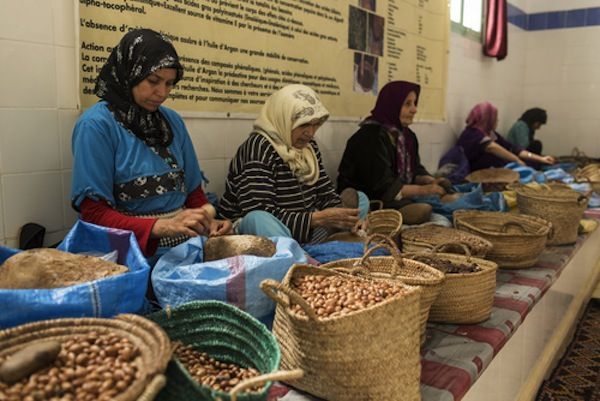
The Moroccan government has committed to legislation to strengthen the role co-operatives play in the economy.
“We believe co-operatives are the future for the Moroccan economy,” said Boubkez Mazoz, the chief of staff to the minister of handicrafts, social economy and solidarity, to an audience of over 2,000 at the International Summit of Co-operatives in Quebec.
Mr Mazoz explained that Moroccan government has a realistic target for growing the number of co-operatives in the economy – the majority of which are centred in small-scale agriculture and handicrafts.
He said the government is addressing two key areas to increase the number of co-operatives, both of which relate to the main themes in International Co-operative Alliance’s Blueprint for a Co-operative Decade.
The Moroccan Parliament has already passed a new law on co-operatives last July and another two legislative proposals on fair trade and the social economy are currently being discussed. The new law introduces a clear definition of co-operative enterprises and enables simplifying the procedure of creating co-operatives. Under the new law local and regional co-operative registers are also being created to keep a record of existing co-ops and promote good governance practices. Currently there are over 12,000 co-operatives in Morocco with 450,000 members.
“The improvement of our legal framework has been our first priority, with the introduction of a new framework for co-operatives. This will address the inertia of administrative proceedings,” he said, noting that with previous legislation it could take up to six months to form a co-operative in Morocco.
Second, the government aims to create secure work for those in the informal economy – people whose employment is largely unknown and outside government regulation and taxation. Previous estimates from the International Monetary Fund put the informal economy at 44% of Morocco’s entire economy.
“We have a programme to enable people in the informal economy to organise themselves in co-operatives.” This will include “a new law to enable these people to be involved in co-operatives” as well as a comprehensive training programme to provide them with the skills needed to run successful businesses.
The Ministry of Handicrafts, Social Economy and Solidarity is launching a coaching project for co-operatives as part of the Mourafaka programme.
Mourafaka is the Moroccan government’s social economy programme that aims to support newly created co-operatives to help them address market challenges. The programme is being implemented over a four years period until 2015 and targets 2,000 co-operatives. It consists of three stages. The first one is diagnosing co-ops from a strategic point of view by highlighting areas of strength and weakness. Managers of these co-ops are then assigned to groups and receive training tailored to the needs of their co-ops.
Under this coaching plan, these co-ops will receive advice and guidance in areas of governance, technical assistance and commercialization for two years.
Picture: women working in a cooperative for the manufacturing of argan fruits in Essaouira, Morocco © danm12 / Shutterstock.com




